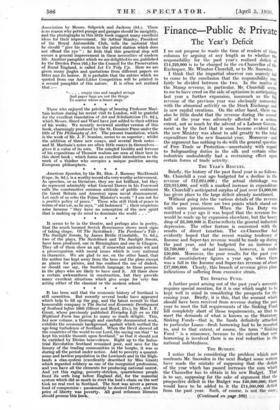It has been said that the economic history of Scotland
is still unwritten. But recently several books have appeared which help to fill up the gap, and the latest recruit to that honourable company is The Social and Economic Development of Scotland before 1603 (Oliver and Boyd, 21s.), by Miss I. F. Grant, whose previously published Everyday Life on an Old Highland Farm has given to many so much delight. This, her new volume, a thorough and carefully documented work, exhibits the economic background, against which seethed the age-long turbulence of Scotland. When the Devil showed all the countries of the world to our Lord; the saying ran that " he kept his mickle thoomb upon Scotland," so that it should not be enriched by Divine benevolence. Right up to the Indus- trial Revolution- Scotland remained poor, and save for the luxury of the trading communities in the burghs, it was so during all the period under notice. Add to poverty a quarrel. some and lawless population in the Lowlands and in the High- lands a clan-system (excellently described by Miss Grant) which regarded robbery as one of the recognized professions, and you have all the elements for producing national unrest. And yet this raging, poverty-stricken, quarrelsome people, freed its serfs long before England did, for the manorial . system which did so much to rivet the lord's chain on the serf took no real root in Scotland. The Scot was never. a -person fond of compromise : passionately he desired liberty, and the price of. liberty was poverty. All good reference libraries should possess this book.










































 Previous page
Previous page